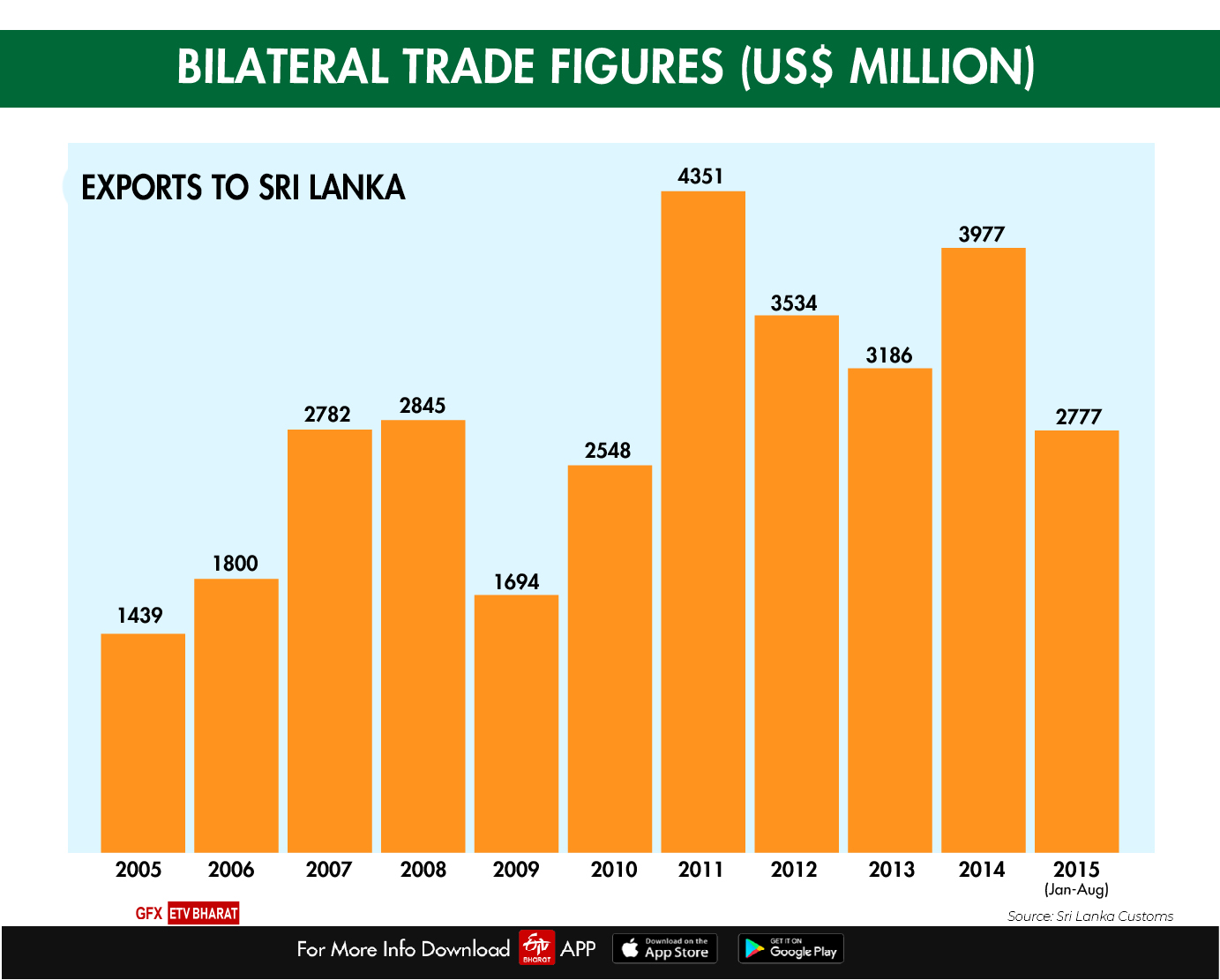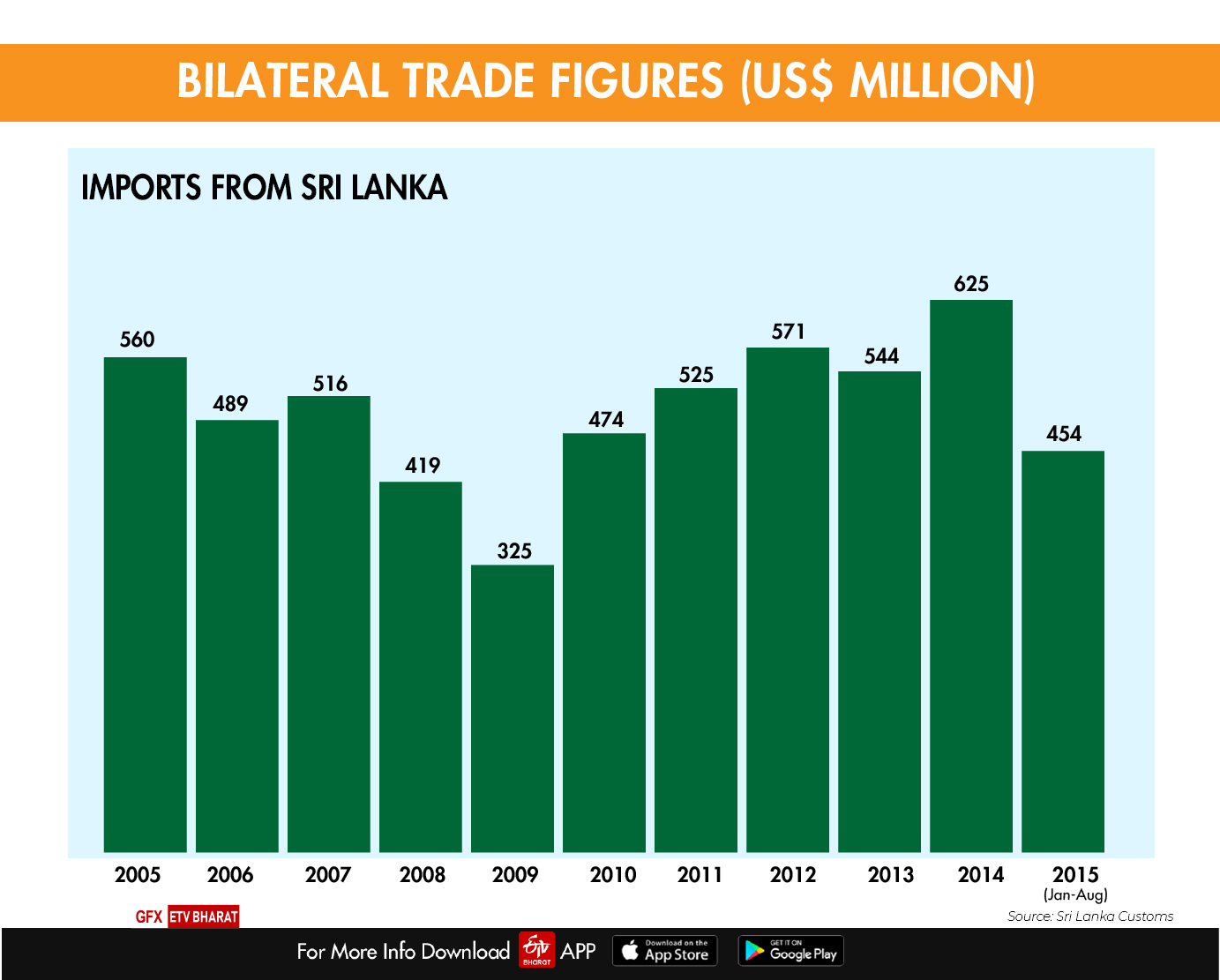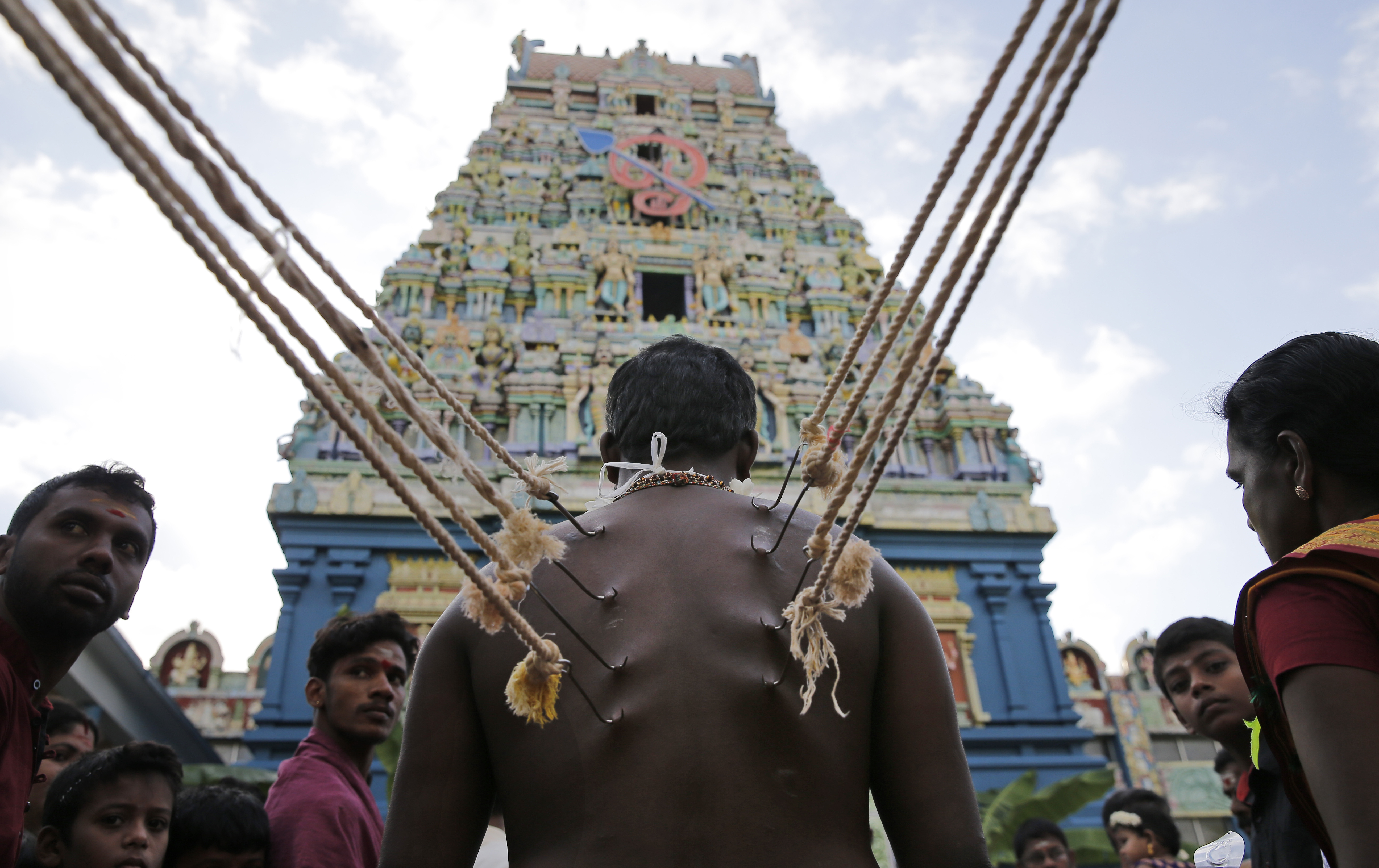Hyderabad: India has over 2,500 yr old relations with its closest maritime neighbour Sri Lanka. A bridge of cultural, religious and linguistic interaction connects both nations but relations have always been effected by the ruling leadership of New Delhi and Colombo.
The island nation is all set for its presidential polls on November 16, and the result may script a new chapter in its relations with India. Both countries have some major issues-
Trade Ties
New Delhi and Colombo enjoy a vibrant and growing commercial partnership, with bilateral trade growing rapidly in the last decade and a number of leading Indian private sector companies investing in Sri Lanka and establishing a presence in the country.

New Delhi is among the top investors in the island nation with cumulative investments of over US$ 800 million since 2003.
India is Sri Lanka’s largest trading partner globally, while the island nation is New Delhi’s second-largest trading partner in the SAARC. It is the number one source of supplies accounting for twenty percent of Sri Lanka’s total imports and the third largest export destination for Colombo products absorbing six percent of total exports.
Both countries also share the membership in other regional and multilateral trading arrangements namely; Asia Pacific Trade Agreement (APTA), South Asia Free Trade Agreement (SAFTA) in the SAARC context, BIMSTEC (Bay of Bengal Initiative for Multicultural Technical and Economic Cooperation), Global System of Trade Preferences (GSTP) and the World Trade Origination (WTO) which were influential in strengthening and further advancing trade and economic ties.

Fishermen in Peril
The fishing war not only strained the ties between New Delhi and Colombo but has also put the livelihood and lives of fishermen, who are often poor and desperate, in peril.
Given the proximity of the territorial waters of both countries, especially in the Palk Straits and the Gulf of Mannar, incidents of straying of fishermen are common.
Both countries have agreed on certain practical arrangements to deal with the issue of bona fide fishermen of either side crossing the International Maritime Boundary Line. Through these arrangements, it has been possible to deal with the issue of detention of fishermen in a humane manner.
New Delhi and the island nation have agreed to set up a Joint Working Group (JWG) on Fisheries between the ministry of agriculture and farmers welfare of India and the ministry of fisheries and aquatic resources development of Sri Lanka as the mechanism to help find a permanent solution to the fishermen issue.
Chinese Checker
Under the leadership of former Sri Lankan president Mahinda Rajapaksa, Colombo apparently started favouring Beijing over New Delhi. Chinese funds started flowing and it has started big buck infrastructure projects in the island nation.
As part of the Maritime Silk Route (MSR) policy, Beijing built two ports, one in Colombo and another in Hambantota. China has also collaborated in satellite launching activities with Supreme SAT (Pvt.), Sri Lanka’s only satellite operator.
In the wake of Beijing’s economic dominance on the island nation, New Delhi is also entering into Sri Lanka’s mega-project business in a big way by focusing on infrastructure development in the northern and eastern provinces.
India is also planning to build Trincomalee port, which is envisioned as the Indian counterweight to Chinese developments at Hambantota Port. Besides, Colombo signed a civil nuclear cooperation agreement in 2015, which is the island nation’s first nuclear partnership with any country.
Indians in Lanka
The People of Indian Origin (PIOs) comprise Sindhis, Borahs, Gujaratis, Memons, Parsis, Malayalis and Telugu speaking persons who have settled down in Sri Lanka (most of them after partition) and are engaged in various business ventures.
Though their numbers (10,000 approximately) are much lesser as compared to Indian Origin Tamils (IOTs), they are economically prosperous and are well placed.

Each of these communities has their organisation which organises festivals and cultural events. According to unofficial statistics, it is estimated that around 14,000 Indian expatriates are living in Sri Lanka.
The IOTs are mostly employed in either tea or rubber plantations in Central, Uva, and Sabragamuwa Provinces though, during the last decade, the younger generation has been migrating to Colombo in search of employment.
A fair number of IOTs living in Colombo are engaged in business. According to government census (2011), the population of IOTs is about 1.6 million.
Defence and Security Cooperation
Sri Lanka and New Delhi have a long history of security cooperation. In recent years, the two sides have steadily increased their military-to-military relationship.
Over the years both countries have conducted joint military excercises – 'Mitra Shakti' and naval exercise, SLINEX. Adding to this, India provided defence training to Sri Lankan forces.
Read also: EXCLUSIVE: Sri Lanka braces up for Prez polls
Besides, a trilateral maritime security cooperation agreement was signed by India, Sri Lanka, and the Maldives to improve surveillance, anti-piracy operations and reducing maritime pollution in the Indian Ocean Region.
In April 2019, India and Sri Lanka have also agreed on countering drug and human trafficking.
The alerts issued by Indian agencies before the horrific Easter bombings had warned specifically about the use of radicalized suicide bombers attacking churches and the Indian High Commission in Colombo.
LTTE
LTTE, known as Tamil Tigers, was founded and led by Velupillai Prabhakaran in 1970 to create a separate Tamil state in northern Sri Lanka.
The LTTE was notorious for introducing suicide bombers in general and particularly in female ones.
LTTE had donned uniforms to directly confront with Sri Lankan military in air, ocean, and land.
The three-decades-long armed conflict between the Sri Lanka Army and LTTE ended on May 2009. During the period, India supported Sri Lanka. At the same time New Delhi also conveyed its deep concern at the plight of the Tamil civilian population including their rights and welfare.
Cultural and Educational Relation
Both governments signed the Cultural Cooperative Agreement on 29 November 1977 in New Delhi. This agreement forms the basis for periodic cultural exchange programs between the two countries. The Indian Cultural Centre in Colombo offers classes in Indian music, dance, Hindi and Yoga to promote Indian culture. Several major events throw the light on the deep cultural and educational ties between these two countries.
The India-Sri Lanka Foundation was set up in December 1998. It focuses on scientific, technical, educational and cultural cooperation through civil society exchanges. It enhances contact between the younger generations of both countries.
India and Sri Lanka commemorated the 2,600th year of the attainment of enlightenment by Lord Buddha, known as Sambuddhatva Jayanthi through joint activities. The Indian Gallery at the International Buddhist Museum, Sri Dalada Maligawa, was inaugurated in December 2013.
The two countries jointly celebrated the 150th Anniversary of Anagarika Dharmapala in 2014. Prime Minister Narendra Modi during his visit to Kandy on 12 May 2017, unveiled dance Academy foundation stone.
Read also: Lanka Presidential Polls: Key candidates to watch out



